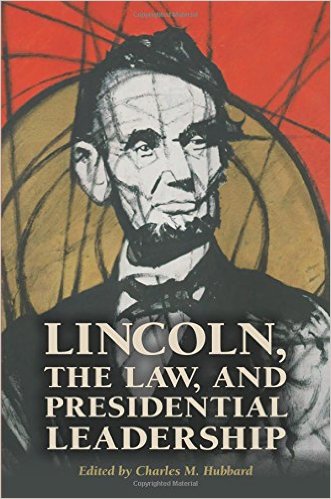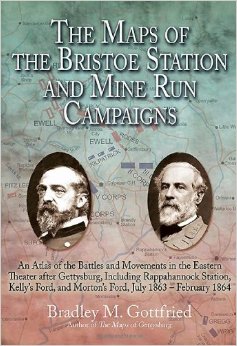Lincoln, the Law, and Presidential Leadership edited by Charles M. Hubbard. Southern Illinois University Press, 2015. Cloth, ISBN: 978-0809334544. $34.50.
 Is there anything new to be written about Abraham Lincoln’s relationship to the law during his careers as lawyer and president? This topic is a well-trodden one, as generations of historians, political scientists, and legal scholars have weighed in on the impact of Lincoln’s pre-war experience as an Illinois lawyer and the many complex, constitutional issues he faced as president. In reading these essays edited by Charles M. Hubbard, one finds both familiar ground and new directions in the scholarship on these topics. With contributions across a range of disciplines from such scholars as Mark E. Steiner, Edna Greene Medford, Frank J. Williams, and others, this slim volume explores the ways in which the law influenced Lincoln’s presidential leadership and his responsibilities as commander in chief during the Civil War. Taken together, writes Hubbard in his introduction, these essays “expand our understanding of Lincoln’s vision for a united nation grounded on the Constitution” and, in some ways, they do succeed in achieving this goal (1).
Is there anything new to be written about Abraham Lincoln’s relationship to the law during his careers as lawyer and president? This topic is a well-trodden one, as generations of historians, political scientists, and legal scholars have weighed in on the impact of Lincoln’s pre-war experience as an Illinois lawyer and the many complex, constitutional issues he faced as president. In reading these essays edited by Charles M. Hubbard, one finds both familiar ground and new directions in the scholarship on these topics. With contributions across a range of disciplines from such scholars as Mark E. Steiner, Edna Greene Medford, Frank J. Williams, and others, this slim volume explores the ways in which the law influenced Lincoln’s presidential leadership and his responsibilities as commander in chief during the Civil War. Taken together, writes Hubbard in his introduction, these essays “expand our understanding of Lincoln’s vision for a united nation grounded on the Constitution” and, in some ways, they do succeed in achieving this goal (1).
Daniel W. Stowell leads off this volume with an essay that stresses the enduring influence of the law throughout most of Lincoln’s life. In “Abraham Lincoln: Lawyer, Leader, President,” Stowell reminds readers that Lincoln’s prewar experience as an Illinois lawyer was indispensable in equipping him with the abilities to assemble and control a contentious cabinet of rivals, deal with generals and military subordinates, and resolve wartime issues relating to slaves, soldiers, governors, and disloyal civilians. Lincoln’s twenty-five-year law career, Stowell concludes, taught him to better understand human nature, hone his communication abilities, think analytically, and commit to “the concept of ordered liberty in a democratic republic” (26). From here, most of the remaining essays explore the familiar tensions within Lincoln’s constitutionalism during the Civil War. It is well known, for example, that in policy areas such as emancipation, Lincoln felt restrained by the Constitution and advanced his war measures slowly, while in others, such as combatting disloyalty in the North, Lincoln moved boldly in the direction of restricting civil liberties. It is also well known, as Charles Hubbard’s own essay argues, that “Lincoln viewed the Constitution and the rule of law that it sustained as necessary to maintaining sufficient unity and harmony within society to ensure the perpetuation of the Union” (60).
And yet a few contributions in this volume provide fresh analyses and suggest new directions in scholarship on Lincoln’s relationship to the law. In an insightful essay that anticipates what is sure to be an excellent forthcoming study on Lincoln and the concept of citizenship, Mark E. Steiner explores the implications of Lincoln’s life-long belief that “the principles of the Declaration[of Independence] would unify all Americans, native and foreign-born” (34). Following John Fabian Witt’s excellent 2012 Lincoln’s Code: The Laws of War in American History, Burrus M. Carhahan’s “Lincoln and the Law of War” persuasively argues that Lincoln eventually developed an expertise on international law and the laws of war, which ultimately helped solidify ultimate Union victory. Finally, in her “Lincoln and the Potter Congressional Committee Concerning the Loyalty of Government Employees,” Natalie Sweet offers a welcome examination of a topic often neglected by historians by looking at how Lincoln dealt with members in his White House targeted for investigation by the Potter Committee. In dealing with this issue, Sweet finds that the Potter Committee’s White House investigation allowed Lincoln “to test the strength of his presidential position and justified his leadership style of steadily pursuing the truth” (172). If nothing else, even seasoned Lincoln scholars would find much originality and insight in these contributions, which will hopefully open up new vistas in Lincoln scholarship.
At times, however, some essays suffer from insufficient historiographical nuance and critical analysis. On the controversial topic of civil liberties, for example, one may well question whether Frank J. Williams’ essay is too uncritical of Lincoln’s justifications for suspending the writ of habeas corpus and imprisoning “insurrectionists” such as the infamous Clement Vallandigham; it will likely leave readers with an inadequate understanding of the constitutional controversies and complexities surrounding Lincoln’s habeas corpus policy and military arrests of civilians. Moreover, both Williams and Stowell incorrectly maintain that Congress formally approved Lincoln’s early suspensions of habeas corpus during the emergency congressional session in August 1861, despite the fact that Republican legislators made explicitly clear the fact that suspension of habeas corpus was not included among the emergency executive actions to be ratified during that summer (20, 75, 77). And while Charles Hubbard correctly argues that the presidential election of 1864 “represented a remarkable test of the fundamental principles of American democracy and constitutional government,” he does not adequately engage more recent scholarship on this complex election, such as Jonathan W. White’s recent Emancipation, the Union Army, and the Reelection of 1864 (2014).
In the end, however, this collection of well-written essays offers something for everyone, as it is both an excellent introduction for students new to these topics and worthy exploration of new directions for future scholarship.
Robert O. Faith is a Ph.D. Candidate in History at the University of Akron.
